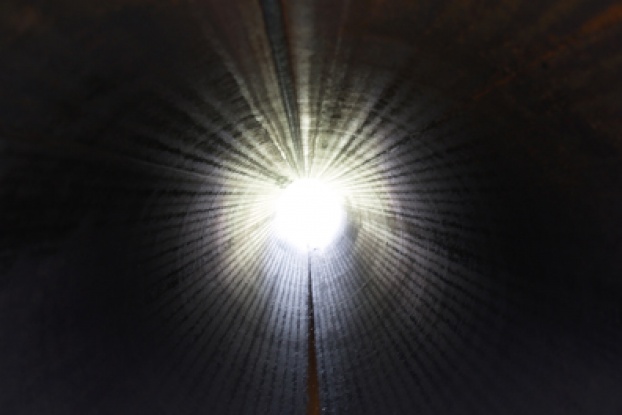What is death
How does Christianity respond to them?
It speaks of the dual nature of man. Its most important part, subtly material, as our hierarchs Ignatius (Brianchaninov) and Theophan the Recluse (who admitted this at the end of his life) write about it, is the soul, which has three levels.
The highest level inherent only to man is the spirit (or mind), the carrier of self-consciousness, personality. He is immortal.
The other two levels – sentient and vegetative-nourishing – are common with the animal and plant worlds and often together with the body are called the flesh, or the natural body, as the apostle Paul wrote: There is a natural body, there is a spiritual body (1 Cor 15:42-44) .
his soul body, or flesh, dies and decays along with the biological body. Death is the gap between the spirit and the flesh, or, more simply, between the soul and the body.
What happens to a person’s soul in the first forty days after death?

After the death of the flesh, the human soul passes into the world of eternity. But the category of eternity is indefinable in terms of time, it refers to those simple things about which the ancient Greek philosopher Plato wrote that “simple things cannot be defined.”
Therefore, the church tradition is forced to answer this question in the language in relation to our consciousness, immersed in the stream of time.
In church tradition there is an interesting answer from the angel St. Macarius of Alexandria (4th century) about what is happening with the soul these days: “.. in the course of two days, the soul.
Together with the angels who are with it, is allowed to walk the earth wherever it wants like a bird, looking for nests for itself .. In the third day .. every Christian soul ascend to heaven to worship the God of all.
After that, He is commanded to show the soul .. the beauty of paradise. All this is considered by the soul for six days . After consideration it again ascends by angels to worship God.
After the second worship, the Lord of all commands to take the soul to hell and show it the places of torment located there .
The soul rushes through these various places of torment for thirty days . On the fortieth day, it again ascends to worship God; and then the Judge determines a proper place for her according to her deeds.
These days, the soul, as it were, passes exams for good and evil. And they, of course, can be delivered differently.
Ordeal – what is it, and why are they called that?
The word “mytnya” means a place where duties were levied, taxes and fines were collected. In the church language, the word “ordeal” expresses a kind of investigation carried out from the ninth to the fortieth day after the death of a person in the matter of his earthly life.
Ordeals are usually called twenty. They are distributed according to passions, each of which includes many corresponding sins.

In the life of, for example, St. Basil the New, blessed Theodora tells about them in the following order:
- idle talk and foul language,
- lies,
- condemnation and slander,
- gluttony and drunkenness,
- laziness,
- theft,
- love of money and stinginess,
- covetousness (bribery, flattery),
- falsehood and vanity,
- envy,
- pride,
- anger,
- vindictiveness,
- robbery (beatings, shocks, fights ),
- witchcraft ( magic, occultism, spiritualism, divination…),
- fornication,
- adultery,
- sodomy,
- idolatry and heresy,
- mercilessness, hardness of heart.
All these ordeals are described in life in vivid images and expressions, which are often mistaken for reality itself, giving rise to distorted ideas not only about the ordeals, but also about heaven and hell, about spiritual life and salvation, about God Himself.
Therefore, shegumen John of Valaam wrote: “Although our Orthodox Church has accepted the story of Theodora’s ordeals, this vision is a private human one, and not Holy Scripture.
Go deeper into the Holy Gospel and the Apostolic Epistles.” And Hieromonk Seraphim (Rose) explains: “It is clear to everyone, except for children, that the concept of “ordeal” cannot be taken literally; this is a metaphor that the Eastern Fathers found appropriate to describe the reality that the soul encounters after death .
But the stories themselves are not “allegories” or “fables”, but true stories of personal experience, presented in the language most convenient for the narrator.
There is no paganism, no occultism, no “Eastern astrology” or “purgatory” in Orthodox stories about ordeals.
About the reason for such an inadequate description of that world by St. John Chrysostom notes that “it is said so in order to bring the subject closer to the understanding of more rude people.”
Why should we pray for the dead?
Prayer in its action is the door for the entry into the soul of the grace of Christ. Therefore, a prayer performed with attention and reverence (and not meaningless subtraction).
While cleansing the one who prays, has a healing effect on the deceased. But one external form of commemoration, even liturgical, without the prayer of the person praying himself, without his life according to the commandments, is nothing more than self-deception, and leaves the deceased without help.